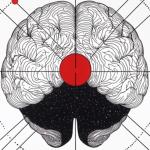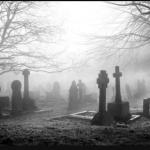The Adventurous Lectionary – November 13, 2016 – Pentecost 26
Isaiah 65:17-25 and Isaiah 13
2 Thessalonians 3:6-13
Luke 21:5-19
Today’s lectionary passages seem tailor-made for the Sunday after Election Day. There will be celebration, gnashing of teeth, shouts of jubilation, and complaints of dishonesty. Election days matter – politics matters – both to our well-being and the fate of the earth. Isaiah and Jesus, speaking from very different political contexts, have words of wisdom for us in the wake of this week’s election.
Isaiah boldly proclaims that God is creating new heavens and a new earth. God is not just a “fixer upper” but is injecting something new into the cultural, political, and economic life the nation. There have been hard times – political upheaval and collapse, economic uncertainty and starvation. Many have given up hope for a positive future for their nation or personal lives. Indeed, the nation may already have collapsed and the upper classes exiled to Babylon.
Still, there is hope; hope, not from our efforts, but from God’s vision of the future. God is creating new possibilities and the energy to achieve them even in dire situations. And, so we can dream in the midst of the struggle of a better and more just world. Perhaps, Jerusalem can be compared to Mosul or Aleppo today, decimated, impoverished, war-torn, and yet with a glimmer of hope for justice, peace, and restoration to new life.
The words of Isaiah speak to us in the aftermath of the election. The results of the election begin the hard work ahead of healing our nation and finding a way to cross partisan boundaries to seek the common good. Isaiah gives us our marching orders toward a positive future. God is at work in the world, and God needs our creative companionship. We need to be on God’s side, not be seduced by the limited visions of nationalism, ethnocentrism, or economic security. We need to dream and then act toward the world God imagines, a world almost impossible to visualize but our only hope for the future: long life, security, happy homes, fruitful vineyards and gardens, laughing children, and peace among opponents. But, more importantly, peoples’ hearts will return to God, enabling God to speak within them. They will experience the divine vision for humankind and Jerusalem and will respond affirmatively, fulfilling their role as God’s companions in healing the earth.
Isaiah 12 continues the theme. We will be joyful, drawing water and chopping wood, in delight and gratitude and doing ordinary things in sacramental ways.
The reading from 2 Thessalonians can be captured by the words, “don’t be weary in doing what is right.” The author commends the community to work diligently, challenging idleness inspired by what I believe was the first-century hope for the Second Coming of Jesus. In the 21st century, we still deal with this idleness, but of a more far-ranging and destructive sort. Much of the opposition to the evidence and subsequent response to the threat of global climate change comes from conservative and apocalyptic Christians. Cynical interpretations would suggest that their opposition is the result of the marriage of Christianity to capitalism and our faith’s capitulation to greed rather God. Theological interpretations would suggest people are passive because of their images of God’s role in creating the future: if God is going to settle everything, and that if world history is entirely in God’s control, there is no reason for us to take initiative in healing the world. Our fate is already decided. Destruction will come from God’s hands and not our own. Our efforts to save the planet reflect our hubris at claiming that we can make a difference in the already-settled future. Despite the hints of divine intervention in Thessalonians, the author challenges us to work diligently, seeking wholeness in every aspect of our lives. Today, this includes the economic and ecological. Do not weary in doing what is right and this means working to save our planet. God will not do everything for us. The fate of the earth may be in our hands, rather than God’s, and God may need us to incarnate God’s vision of a new earth.
Jesus’ words seem contrary to those of Isaiah. Jesus talks about persecution and chaos, not rejoicing and fruitfulness. Jesus suggests that all things must pass and that all things are finite and mortal, including our nation’s future. All nations are finite, fallible, and will eventually pass, as will the earth. Still, we must persevere though the path be difficult. We must work for justice, following God’s way even if there is a cost.
Earth is the balance, to quote Al Gore, and Jesus’ words describe a godless future scenario, the world that will emerge if we don’t care for the earth and one another. He also describes what we may face if we choose to follow the paths of righteousness and earth care in a consumerist time. Short-sighted leaders will condemn those who suggest that we must live more simply, take the lead as nation in downward mobility, and changing our economic and business structures to be more sustainable. God will, nevertheless, give us wisdom amid the fray. God will guide us so that we will be faithful and true to God’s way, recognizing our limitations as we seek God’s new creation, despite the challenges that confront us.
God has given us a vision of a new creation – a new heavens and a new earth. Today, we must ask: will we choose the path that leads to healing the earth or will we continue on our destructive ways – politically, economically, and ecologically?














